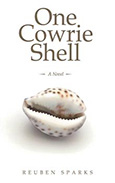
 |
Jiaye, a Yoruba teenager, is determined. He will have Kembi as his first wife someday, despite the objections of his father, the village elders, and the girl herself. Surely if he has enough cowrie shells—a seashell his people use almost like money—he can convince Kembi and everyone else to accept him as her suitor instead of Ekun. But some minds are hard to change, especially when change involves rejecting tradition. Tradition and fear are what keep the Yoruba constantly fighting against the Dahomey, despite the fact that both sides are losing their captured warriors to the slave traders. Still, Jiaye is obsessed with having Kembi for his own, even if that means doing the unthinkable.
In a tragic tale that spans three continents and which offers insights into Yoruba culture, the slave trade, and the nightmare life that slaves faced on the plantations, the author manages to recreate some of the same atmospheric overtones of the best in African literature. Although Jiaye's success in remaining unbound on a slave ship, escaping capture in the American South, and then making it back to his homeland via Europe is as thrillingly improbable as a Robert Ludlum potboiler, Sparks' understanding of the conventions of the traditional African novel is dead on. At times reminiscent of the youthful naïveté found in Wole Soyinka's Aké: The Years of Childhood or the self-imposed blindness present in Chinua Achebe's Things Fall Apart, his book reads more like it was written by a Nigerian author than an American one. Even the ending is consistent with the genre. In the end, Sparks' debut novel marks a promising start for a new author. Redolent with the conventions that typify much of twentieth century West African prose, it successfully pays homage to a unique literary style.